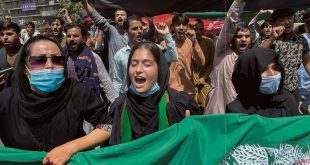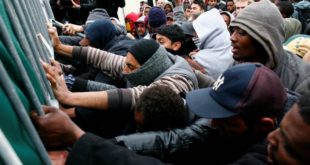by COORDINAMENTO MIGRANTI
 → IT
→ IT
On 24 April 2013 a building collapsed in Savar, near Dhaka, in Bangladesh: 1,129 dead. They were workers, women and men. It was the worst disaster that had ever occurred in a textile factory. The factory supplied very famous brands: Auchan, Bonmarché, Mango, El Corte Ingles, WalMart and many others.
On 3 October 2013, almost three hundred migrants died when a boat sank off Lampedusa. The ship, which like many others started off from Libya, was packed with men and women from different African countries who for various reasons had chosen to migrate and build a better life.
Sunday, December 1, 2013, seven Chinese workers died in Prato, Tuscany. They lived, like many other chinese workers, in the same buildings where they worked, working with sub-sub contracts from 12 to 14 hours a day, paid by the piece by a fast fashion company.
In 2014 in Qatar a Nepalese worker died on average once every two days, on construction sites where the infrastructure for the 2022 World Cup is being built. The estimate overall is even higher, taking into consideration migrant workers from Bangladesh, Sri Lanka and India.
What do all these deaths have to do with 12 people killed in Paris at the headquarters of Charlie Hebdo? Very much. It is through the eyes of all those who move throughout this world, of all those who criticize with their own movement the present state of things, which we feel is necessary to condemn the massacre in Paris.
We see ourselves as part of a transnational movement, and do not differentiate between dead here or elsewhere. The movements of migrants are not free, but constantly seek freedom nonetheless. How heavily does the fanaticism of those who want to make religion a form of compulsory identity weigh on the movements of migrants? Very much. Twelve dead in Paris weigh heavily on the movements of migrants, because they exact a price on their freedom to move to and stay in places where they would like to settle down. There is a dismal trend these days to differentiate among the dead. Instead the dead of Paris will eventually added up to all the other deaths that dot the migratory routes of this planet.
In the every day attacks of governments on the freedom of migrants, religion is becoming more and more a self-defense mechanism that provides an identity and even an acknowledgment of worth. But those who make religion a sole and absolute identity are not opposed the governing and control of migration. Those who make religion a weapon and a constant blackmail are opposed to the freedom of migrants to change not only the country they live in but also to change themselves.
We must choose the perspective from which to look at things. Our perspective is not the opposite to that of Salvini, Fallaci, Ferrara, Zemmour. As annoying and dangerous as these positions are, to lower oneself to their level, to accept the ground that they impose, to discuss how much West there should or should not be, means reducing the matter to a «Western» debate between a tolerant and intolerant position. Freedom is not a matter of mere tolerance. Our perspective is not that that seeks to measure how much West there was in the satire of Charlie Hebdo, how politically incorrect it was, wether and how much it was disrespectful of the established identity of the religions of others. Freedom is not an a priori selection of allowed topics. Imperialism is not an omnipotent god that creates all things. ISIS and Al Qaeda are not simply the perverse and poisonous effect of Western policy, which today returns violently, and in almost deserved manner. We do not think that everything is West, because from the point of view of migrants this division between the West and the rest of the world is not so clear-cut. We prefer to face the violence of ISIS and Al Qaeda head on, recognizing that even in places of oppression, movements and institutions of oppression are born, knowing that only the movements of the oppressed can break the symmetries of the oppressors. Being stubbornly on the side of the oppressed, we are interested in what they suffer every day. What interests us are the new ways the oppressed find every day to escape regimes of oppression.
We struggle every day to assert our freedom and we are against those who act to take away our freedom and that of others. The revolutions in Tunisia and Egypt, to demand for the freedom to live of the people of Gaza, the courage of the women and men of Rojava – who while resisting the advance of ISIS are struggling to change a society of oppression and exploitation – have been and are for us freedom movements that add to the struggles of migrants in Europe and elsewhere. For us to say no to war means saying no to «border democracy», exploitation imposed by force of arms and by immigration laws, but also to say no to any power that uses or invokes holy war to establish itself. So today we are against those who peddle death as freedom. This is why for us the massacre of Paris is not just an attack on freedom of expression, but the sign of oppression and restriction of freedom for millions of living that move around and across the borders of the world. It announces a dictatorship on women’s bodies, a new tyranny that we do not want to know. To those who think they will find freedom in the afterlife by enlisting in gangs of powerful assassins, that do business with anyone and then seek to impose their rule by force, killing by design, we say that their freedom is not our freedom . You can not paint a black door red.
 ∫connessioniprecarie connettere gli ∫connessi, produrre comunicazione
∫connessioniprecarie connettere gli ∫connessi, produrre comunicazione




